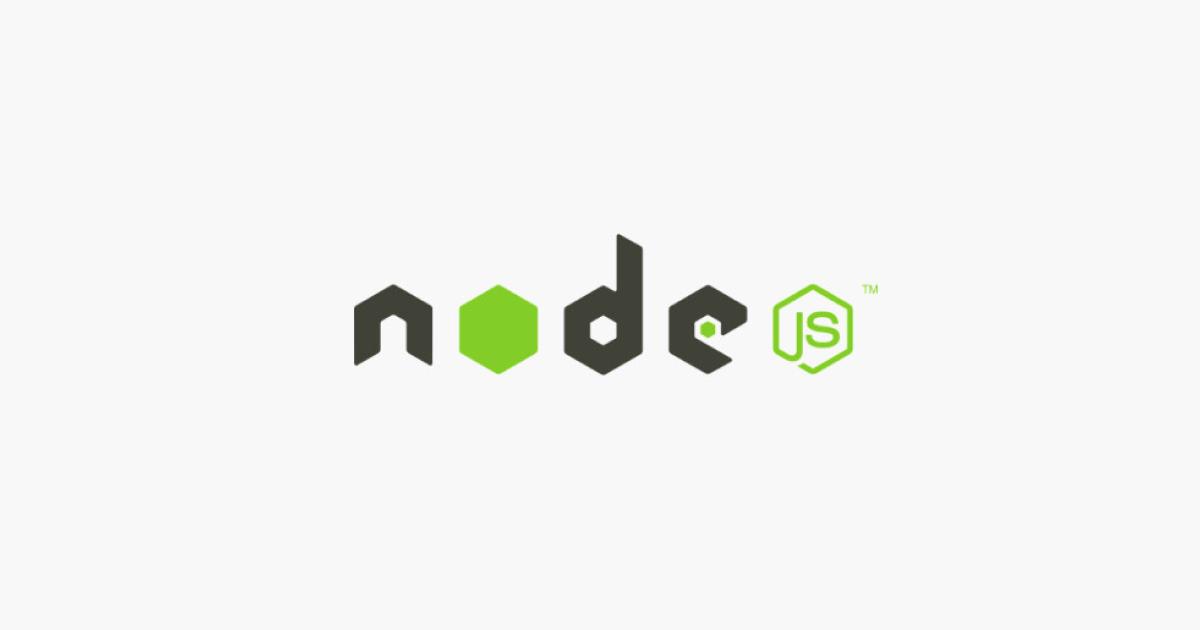Node.js クロスプラットフォーム対応のコツ

Node.js でクロスプラットフォーム対応を実現する際、多くの開発者が直面する課題があります。「Windows 環境では動作するのに、Linux では動かない」「macOS では問題ないのに、Windows でパスエラーが発生する」といった経験をお持ちの方も多いのではないでしょうか。
本記事では、Node.js におけるクロスプラットフォーム開発の実践的な対応方法について、実際のエラーコードとその解決策を交えながら詳しく解説いたします。開発効率を向上させ、メンテナンスしやすいアプリケーションを構築するためのノウハウをお伝えします。
背景
現代のアプリケーション開発におけるマルチプラットフォーム対応の必要性
現代のソフトウェア開発では、単一のプラットフォームに依存しない柔軟なアプリケーションが求められています。開発チームが異なる OS を使用することは当たり前になり、本番環境とローカル環境の OS が異なるケースも頻繁に発生します。
特に、リモートワークが普及した今日では、Windows、macOS、Linux が混在する開発環境が一般的です。このような環境で安定したアプリケーションを提供するためには、クロスプラットフォーム対応が不可欠といえるでしょう。
Node.js が選ばれる理由とクロスプラットフォーム開発の利点
Node.js は、その設計思想からクロスプラットフォーム対応に優れた特性を持っています。以下のような理由から、多くの開発者に選ばれています。
| 項目 | 説明 | 利点 |
|---|---|---|
| JavaScript 統一 | フロントエンドとバックエンドで同じ言語を使用 | 開発効率の向上、学習コストの削減 |
| 豊富なエコシステム | npm パッケージによる機能拡張 | 開発時間の短縮、品質向上 |
| 高いパフォーマンス | V8 エンジンによる高速実行 | スケーラブルなアプリケーション開発 |
| コミュニティサポート | 活発なコミュニティと豊富な情報 | 問題解決の迅速化 |
これらの利点を活かしながら、適切なクロスプラットフォーム対応を行うことで、より安定したアプリケーション開発が可能になります。
課題
Windows、macOS、Linux 間でのパス区切り文字の違い
最も頻繁に遭遇する問題の一つが、パス区切り文字の違いです。Windows では\(バックスラッシュ)、Unix 系 OS では/(スラッシュ)を使用するため、以下のようなエラーが発生することがあります。
javascript// 問題のあるコード例
const filePath = 'src\\components\\Button.tsx';
console.log(filePath); // Windows: 正常動作, Unix: エラーの可能性
このコードを Linux で実行すると、以下のようなエラーが発生する可能性があります:
perlENOENT: no such file or directory, open 'src\components\Button.tsx'
環境変数の扱い方の差異
環境変数の設定方法もプラットフォームによって異なります。特に、package.json の scripts セクションで環境変数を設定する際に問題が発生しやすいです。
json{
"scripts": {
"start": "NODE_ENV=production node server.js"
}
}
このスクリプトを Windows で実行すると、以下のエラーが発生します:
csharp'NODE_ENV' is not recognized as an internal or external command,
operable program or batch file.
ファイルシステムの権限管理の違い
Unix 系 OS では詳細なファイルパーミッションがありますが、Windows では異なる権限管理システムを使用します。これにより、以下のような問題が発生する可能性があります。
javascript// ファイル作成時の権限問題
const fs = require('fs');
fs.writeFileSync('temp.txt', 'Hello World', {
mode: 0o644,
});
Windows ではmodeオプションが期待通りに動作せず、場合によってはエラーが発生します:
arduinoError: EPERM: operation not permitted, open 'temp.txt'
外部コマンド実行時の差異
外部コマンドの実行可能ファイルの拡張子や、コマンドの文法がプラットフォームによって異なります。
javascript// 問題のあるコード例
const { exec } = require('child_process');
exec('ls -la', (error, stdout, stderr) => {
if (error) {
console.error(`exec error: ${error}`);
return;
}
console.log(`stdout: ${stdout}`);
});
このコードを Windows で実行すると、以下のエラーが発生します:
bashexec error: Error: spawn ls ENOENT
解決策
path モジュールを使用した適切なパス処理
Node.js の標準モジュールであるpathを活用することで、プラットフォーム間のパス処理の違いを解決できます。
javascriptconst path = require('path');
// 推奨: pathモジュールを使用したパス結合
const filePath = path.join(
'src',
'components',
'Button.tsx'
);
console.log(filePath); // Windows: src\components\Button.tsx, Unix: src/components/Button.tsx
// 絶対パスの取得
const absolutePath = path.resolve(
'src',
'components',
'Button.tsx'
);
console.log(absolutePath); // プラットフォームに応じた絶対パス
さらに、パス操作で便利なメソッドを活用することで、より安全なファイル操作が可能になります:
javascriptconst path = require('path');
// ファイル名の取得
const fileName = path.basename('/path/to/file.txt'); // 'file.txt'
// 拡張子の取得
const extension = path.extname('file.txt'); // '.txt'
// ディレクトリ名の取得
const dirname = path.dirname('/path/to/file.txt'); // '/path/to'
process.env と cross-env を活用した環境変数管理
環境変数の設定には cross-env パッケージを使用することで、プラットフォーム間の違いを解決できます。
まず、cross-env パッケージをインストールします:
bashyarn add --dev cross-env
次に、package.json の scripts セクションを以下のように修正します:
json{
"scripts": {
"start": "cross-env NODE_ENV=production node server.js",
"dev": "cross-env NODE_ENV=development nodemon server.js",
"build": "cross-env NODE_ENV=production webpack --mode production"
}
}
アプリケーション内での環境変数の読み取りは以下のように行います:
javascript// 環境変数の安全な読み取り
const nodeEnv = process.env.NODE_ENV || 'development';
const port = process.env.PORT || 3000;
const dbUrl =
process.env.DATABASE_URL ||
'mongodb://localhost:27017/myapp';
console.log(`Environment: ${nodeEnv}`);
console.log(`Port: ${port}`);
console.log(`Database URL: ${dbUrl}`);
fs.promises API を使用した非同期ファイル操作
モダンな Node.js では、fs.promises API を使用することで、より安全で保守性の高いファイル操作が可能になります。
javascriptconst fs = require('fs').promises;
const path = require('path');
// ファイル読み取りの安全な実装
async function readConfigFile(configPath) {
try {
const fullPath = path.resolve(configPath);
const data = await fs.readFile(fullPath, 'utf8');
return JSON.parse(data);
} catch (error) {
if (error.code === 'ENOENT') {
console.error(
`設定ファイルが見つかりません: ${configPath}`
);
return null;
}
throw error;
}
}
ファイル書き込みの際も、適切なエラーハンドリングを実装します:
javascriptasync function writeConfigFile(configPath, data) {
try {
const fullPath = path.resolve(configPath);
const jsonData = JSON.stringify(data, null, 2);
await fs.writeFile(fullPath, jsonData, 'utf8');
console.log(`設定ファイルを保存しました: ${fullPath}`);
} catch (error) {
if (error.code === 'EACCES') {
console.error(
`書き込み権限がありません: ${configPath}`
);
} else {
console.error(`ファイル保存エラー: ${error.message}`);
}
throw error;
}
}
child_process での安全なコマンド実行
外部コマンドの実行では、プラットフォーム間の違いを考慮した実装が重要です。
javascriptconst { spawn } = require('child_process');
const path = require('path');
// プラットフォーム判定とコマンド実行
function executeCommand(command, args = []) {
const isWindows = process.platform === 'win32';
let cmd = command;
let cmdArgs = args;
if (isWindows) {
// Windowsの場合はcmdを通して実行
cmd = 'cmd';
cmdArgs = ['/c', command, ...args];
}
const child = spawn(cmd, cmdArgs);
child.stdout.on('data', (data) => {
console.log(`stdout: ${data}`);
});
child.stderr.on('data', (data) => {
console.error(`stderr: ${data}`);
});
child.on('close', (code) => {
console.log(
`子プロセスが終了しました。終了コード: ${code}`
);
});
return child;
}
より高度なコマンド実行では、shell オプションを活用することもできます:
javascriptconst { exec } = require('child_process');
// shellオプションを使用した安全な実行
function runShellCommand(command) {
return new Promise((resolve, reject) => {
exec(
command,
{ shell: true },
(error, stdout, stderr) => {
if (error) {
reject(error);
return;
}
resolve({ stdout, stderr });
}
);
});
}
// 使用例
async function listFiles() {
try {
const isWindows = process.platform === 'win32';
const command = isWindows ? 'dir' : 'ls -la';
const result = await runShellCommand(command);
console.log(result.stdout);
} catch (error) {
console.error('コマンド実行エラー:', error.message);
}
}
具体例
OS 判定とそれに応じた処理分岐の実装
実際のプロジェクトでは、OS 判定を行い、それに応じた処理分岐を実装することが重要です。
javascript// OS判定ユーティリティ
class PlatformUtils {
static isWindows() {
return process.platform === 'win32';
}
static isMacOS() {
return process.platform === 'darwin';
}
static isLinux() {
return process.platform === 'linux';
}
static getPlatformInfo() {
return {
platform: process.platform,
arch: process.arch,
version: process.version,
isWindows: this.isWindows(),
isMacOS: this.isMacOS(),
isLinux: this.isLinux(),
};
}
}
// 使用例
console.log(
'プラットフォーム情報:',
PlatformUtils.getPlatformInfo()
);
OS 別の設定ファイルの読み込み例:
javascriptconst fs = require('fs').promises;
const path = require('path');
class ConfigManager {
constructor() {
this.config = null;
}
async loadConfig() {
const platform = process.platform;
const configFileName = `config.${platform}.json`;
const fallbackConfig = 'config.default.json';
try {
// プラットフォーム固有の設定ファイルを試す
const platformConfigPath = path.join(
__dirname,
'config',
configFileName
);
const configData = await fs.readFile(
platformConfigPath,
'utf8'
);
this.config = JSON.parse(configData);
console.log(
`プラットフォーム固有の設定を読み込みました: ${configFileName}`
);
} catch (error) {
if (error.code === 'ENOENT') {
// フォールバック設定ファイルを読み込む
try {
const fallbackPath = path.join(
__dirname,
'config',
fallbackConfig
);
const configData = await fs.readFile(
fallbackPath,
'utf8'
);
this.config = JSON.parse(configData);
console.log(
`デフォルト設定を読み込みました: ${fallbackConfig}`
);
} catch (fallbackError) {
throw new Error(
`設定ファイルの読み込みに失敗しました: ${fallbackError.message}`
);
}
} else {
throw error;
}
}
}
}
クロスプラットフォーム対応のビルドスクリプト作成
プロジェクトのビルドスクリプトもクロスプラットフォーム対応が重要です。以下は、実際の package.json の設定例です:
json{
"name": "cross-platform-app",
"version": "1.0.0",
"scripts": {
"clean": "cross-env rimraf dist",
"build": "cross-env NODE_ENV=production webpack --mode production",
"build:dev": "cross-env NODE_ENV=development webpack --mode development",
"start": "cross-env NODE_ENV=production node dist/server.js",
"dev": "cross-env NODE_ENV=development nodemon src/server.js",
"test": "cross-env NODE_ENV=test jest",
"test:watch": "cross-env NODE_ENV=test jest --watch",
"lint": "eslint src/**/*.js",
"lint:fix": "eslint src/**/*.js --fix"
},
"devDependencies": {
"cross-env": "^7.0.3",
"rimraf": "^3.0.2",
"nodemon": "^2.0.20",
"jest": "^29.0.0",
"eslint": "^8.0.0",
"webpack": "^5.0.0",
"webpack-cli": "^4.0.0"
}
}
カスタムビルドスクリプトの実装例:
javascript// build.js - クロスプラットフォーム対応のビルドスクリプト
const fs = require('fs').promises;
const path = require('path');
const { exec } = require('child_process');
const { promisify } = require('util');
const execAsync = promisify(exec);
class BuildManager {
constructor() {
this.distPath = path.join(__dirname, 'dist');
this.srcPath = path.join(__dirname, 'src');
}
async clean() {
try {
await fs.rmdir(this.distPath, { recursive: true });
console.log(
'ビルドディレクトリをクリーンアップしました'
);
} catch (error) {
if (error.code !== 'ENOENT') {
throw error;
}
}
}
async createDistDirectory() {
try {
await fs.mkdir(this.distPath, { recursive: true });
console.log('ビルドディレクトリを作成しました');
} catch (error) {
if (error.code !== 'EEXIST') {
throw error;
}
}
}
async build() {
console.log('ビルドを開始します...');
try {
await this.clean();
await this.createDistDirectory();
const webpackCommand = path.join(
__dirname,
'node_modules',
'.bin',
'webpack'
);
const result = await execAsync(
`"${webpackCommand}" --mode production`
);
console.log('ビルドが完了しました');
console.log(result.stdout);
} catch (error) {
console.error('ビルドエラー:', error.message);
if (error.stderr) {
console.error('stderr:', error.stderr);
}
process.exit(1);
}
}
}
// 実行部分
if (require.main === module) {
const builder = new BuildManager();
builder.build();
}
各 OS 向けの実行可能ファイル生成
Node.js アプリケーションを実行可能ファイルとして配布する際も、クロスプラットフォーム対応が重要です。pkg パッケージを使用した例をご紹介します:
bash# pkgパッケージのインストール
yarn add --dev pkg
package.json の設定:
json{
"bin": "./dist/server.js",
"pkg": {
"targets": [
"node16-win-x64",
"node16-macos-x64",
"node16-linux-x64"
],
"outputPath": "build",
"scripts": ["dist/**/*.js"]
},
"scripts": {
"build:exe": "pkg . --out-path build",
"build:exe:win": "pkg . --targets node16-win-x64 --out-path build",
"build:exe:mac": "pkg . --targets node16-macos-x64 --out-path build",
"build:exe:linux": "pkg . --targets node16-linux-x64 --out-path build"
}
}
実行可能ファイルの生成とテストを自動化するスクリプト:
javascript// package-builder.js
const { exec } = require('child_process');
const fs = require('fs').promises;
const path = require('path');
const { promisify } = require('util');
const execAsync = promisify(exec);
class PackageBuilder {
constructor() {
this.buildPath = path.join(__dirname, 'build');
this.targets = [
{
name: 'Windows',
target: 'node16-win-x64',
ext: '.exe',
},
{
name: 'macOS',
target: 'node16-macos-x64',
ext: '',
},
{
name: 'Linux',
target: 'node16-linux-x64',
ext: '',
},
];
}
async buildForAllPlatforms() {
console.log(
'全プラットフォーム向けの実行可能ファイルを生成します...'
);
try {
// ビルドディレクトリの作成
await fs.mkdir(this.buildPath, { recursive: true });
for (const target of this.targets) {
console.log(`${target.name}向けのビルドを開始...`);
const command = `npx pkg . --targets ${target.target} --out-path build`;
const result = await execAsync(command);
console.log(
`${target.name}向けのビルドが完了しました`
);
// 生成されたファイルの確認
const expectedFile = path.join(
this.buildPath,
`your-app-name${target.ext}`
);
try {
const stats = await fs.stat(expectedFile);
console.log(
` ファイルサイズ: ${Math.round(
stats.size / 1024 / 1024
)}MB`
);
} catch (error) {
console.error(
` 警告: 実行可能ファイルが見つかりません: ${expectedFile}`
);
}
}
console.log(
'全プラットフォーム向けのビルドが完了しました'
);
} catch (error) {
console.error('ビルドエラー:', error.message);
process.exit(1);
}
}
}
// 実行
if (require.main === module) {
const builder = new PackageBuilder();
builder.buildForAllPlatforms();
}
まとめ
クロスプラットフォーム開発のベストプラクティス
Node.js におけるクロスプラットフォーム開発では、以下のベストプラクティスを心がけることが重要です。
1. 標準モジュールの活用
pathモジュールを使用したパス処理fs.promisesを使用した非同期ファイル操作process.platformを使用した OS 判定
2. 適切なツールの選択
cross-envによる環境変数管理rimrafによるクロスプラットフォーム対応のファイル削除pkgによる実行可能ファイル生成
3. エラーハンドリングの充実
- プラットフォーム固有のエラーを想定した実装
- 適切なフォールバック処理
- 詳細なログ出力
これらの対策を講じることで、開発者は「どの OS でも動作する」という安心感を得られ、ユーザーは環境に依存しない安定したアプリケーションを利用できます。
今後の展望
クロスプラットフォーム開発の分野では、以下のような技術的進歩が期待されます:
WebAssembly(WASM)の活用
- より高速な実行環境
- ネイティブコードとの統合
コンテナ技術の発展
- Docker による環境統一
- Kubernetes によるオーケストレーション
開発ツールの進化
- より強力なデバッグツール
- 自動テストフレームワークの充実
これらの技術を活用することで、さらに効率的なクロスプラットフォーム開発が可能になるでしょう。
開発者にとって最も重要なのは、「ユーザーがどのような環境でも快適に使用できるアプリケーション」を提供することです。技術的な制約を理解し、適切な解決策を選択することで、より良いソフトウェアを世界に届けることができます。
あなたの次のプロジェクトでも、本記事で紹介した手法を活用していただき、すべてのユーザーに愛されるアプリケーションを開発してください。
関連リンク
著書
 article
articleNode.jsセキュリティアップデート、今すぐ必要?環境別の判断フローチャート
 article
articleNode.js HTTP/2サーバーが1リクエストでダウン:CVE-2025-59465の攻撃手法と防御策
 article
articleDatadog・New Relic利用者は要注意:async_hooksの脆弱性がAPMツール経由でDoSを引き起こす理由
 article
article【緊急】2026年1月13日発表 Node.js 脆弱性8件の詳細と対策|HTTP/2・async_hooks のDoS問題を解説
 article2026年1月11日
article2026年1月11日Node.jsとTypeScriptのユースケース バックエンド開発で型を活かす実践テクニック
 article2025年12月24日
article2025年12月24日TypeScriptでESMとCJS混在をトラブルシュートする ERR_REQUIRE_ESMとimport不可を直す
 article
articleshadcn/ui × TanStack Table 設計術:仮想化・列リサイズ・アクセシブルなグリッド
 article
articleRemix のデータ境界設計:Loader・Action とクライアントコードの責務分離
 article
articlePreact コンポーネント設計 7 原則:再レンダリング最小化の分割と型付け
 article
articlePHP 8.3 の新機能まとめ:readonly クラス・型強化・性能改善を一気に理解
 article
articleNotebookLM に PDF/Google ドキュメント/URL を取り込む手順と最適化
 article
articlePlaywright 並列実行設計:shard/grep/fixtures で高速化するテストスイート設計術
 blog
blogiPhone 17シリーズの発表!全モデルiPhone 16から進化したポイントを見やすく整理
 blog
blogGoogleストアから訂正案内!Pixel 10ポイント有効期限「1年」表示は誤りだった
 blog
blog【2025年8月】Googleストア「ストアポイント」は1年表記はミス?2年ルールとの整合性を検証
 blog
blogGoogleストアの注文キャンセルはなぜ起きる?Pixel 10購入前に知るべき注意点
 blog
blogPixcel 10シリーズの発表!全モデル Pixcel 9 から進化したポイントを見やすく整理
 blog
blogフロントエンドエンジニアの成長戦略:コーチングで最速スキルアップする方法
 review
review今の自分に満足していますか?『持たざる者の逆襲 まだ何者でもない君へ』溝口勇児
 review
reviewついに語られた業界の裏側!『フジテレビの正体』堀江貴文が描くテレビ局の本当の姿
 review
review愛する勇気を持てば人生が変わる!『幸せになる勇気』岸見一郎・古賀史健のアドラー実践編で真の幸福を手に入れる
 review
review週末を変えれば年収も変わる!『世界の一流は「休日」に何をしているのか』越川慎司の一流週末メソッド
 review
review新しい自分に会いに行こう!『自分の変え方』村岡大樹の認知科学コーチングで人生リセット
 review
review科学革命から AI 時代へ!『サピエンス全史 下巻』ユヴァル・ノア・ハラリが予見する人類の未来
